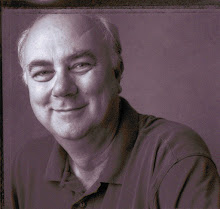Twenty
five years ago I wrote a magazine story about the life of a high school
basketball referee – the abuse they faced, verbal and occasionally physical,
all for very low pay, and the reason they all said they did it: for the love of
the game.
My
two favorite stories from that article came from an old coach turned radio
analyst, the legendary Jock Sutherland:
Here’s
how Earl Cox, longtime sports editor of the Louisville Courier-Journal
wrote it originally in 1958 complete with the original illustration by Courier-Journal
artist Ben Ramsay:
By
EARL COX
Basketball,
the game that lures a sizable portion of Kentucky's population into gyms from
November through March, has its extremely serious moments.
But
the hardwood sport has its lighter moments, too. For instance:
Charley
'Jock" Sutherland, one of the finest shooters Ralph Carlisle ever turned
out at Lexington Lafayette, is now coach at Gallatin County High at Warsaw. A
couple of seasons ago, Sutherland earned for all time the title of
quickest-thinking coach in Kentucky.
During
a tight game, Sutherland dashed onto the floor to dispute a referee's decision.
The
official indignantly informed Sutherland that for each step he took returning
to the bench, a technical foul would be assessed on Gallatin County. Know what
Sutherland did?
He
yelled for his players to come out on the floor. They carried him back to the
bench and he got off with only one technical foul!
For my magazine story, Jock told me a second great referee story, again involving him:
“Once we were playing down at Hazard and the
referee kept drinking out of our Gatorade. Our bus-driver had some vodka and he
poured it in our Gatorade. The referee just kept coming over to our Gatorade.
His partner asked him if something was the matter. He said it was the best
Gatorade he’d ever had. By the end of the game, he didn’t know where he was.”
Coach LeRoy Sprankle’s
Rules for Athletes
As
promised, from the May 16, 1924 issue of the Kingsport Times are
Kingsport Central High coach and athletic director LeRoy Sprankle’s rules for
his athletes:
1.
No smoking under any circumstances.
2.
No drinking under any circumstances.
3.
No association with questionable company of either sex.
4.
No keeping of late hours.
Coach
Sprankle has ruled that all candidates who do not sign the pledge to keep the
above rules inviolate shall not be allowed to participate in any athletic
event.
If a
candidate would be a member of Kingsport Central’s varsity team:
1.
Be a man, physically, mentally and morally.
2.
Be determined.
3.
Be aggressive.
4.
Improvement.
5.
Have the ability.
6.
Be eligible at all times.
7.
Attend every practice.
To
attain these requirements, he advances the following suggestions as aids along
the way.
1.
Eat plain and nourishing food.
2.
Do not eat between meals.
3.
Do not overeat.
4.
Do not eat much candy.
5.
Establish regular habits.
6.
Drink a glass of cold water upon retiring and arising.
7.
Get plenty of exercise.
8.
Toughen yourself - box, wrestle and hike.
9.
Study yourself, find your weakness, improve it.
10.
Don’t give up. Fight and make your opponent put out his best to beat you.
11.
It takes a man to live up to this, are you a man?
Those
were Sprankle’s guidelines 99 years ago.
The Night Jerry Lee Came to Kingsport
Jerry
Lee Lewis, the Louisiana Wild Man, died back in the fall. My favorite Jerry Lee
Lewis story, one of them anyway:
Jerry
Lee was the headliner. Conway was the opening act even though both were equally
big stars at the time.
Jim
Sauceman told me about the show; his brother-in-law, the late Tiny Day, was the
promoter.
“Conway
was always late. Jerry Lee’s bus came in the parking lot about 2 p.m. Conway
called about 6 p.m. and said he wasn’t going to make it on time. Tiny took the
message to Jerry Lee, who said, ‘Killer don’t open for anybody.’“
Killer
is Jerry Lee’s nickname. He pretty much gave it to himself. When he was a kid,
he called all his buddies “Killer” so they started calling him “Killer.” It
stuck and years later it would become even more appropriate but that’s a story
for another day.
When
Jerry Lee told Tiny that he would not open the show, Tiny replied, “To get your
money, you’ll open.”
Jerry
Lee hit the stage at 8 p.m. sharp.






.jpg)





